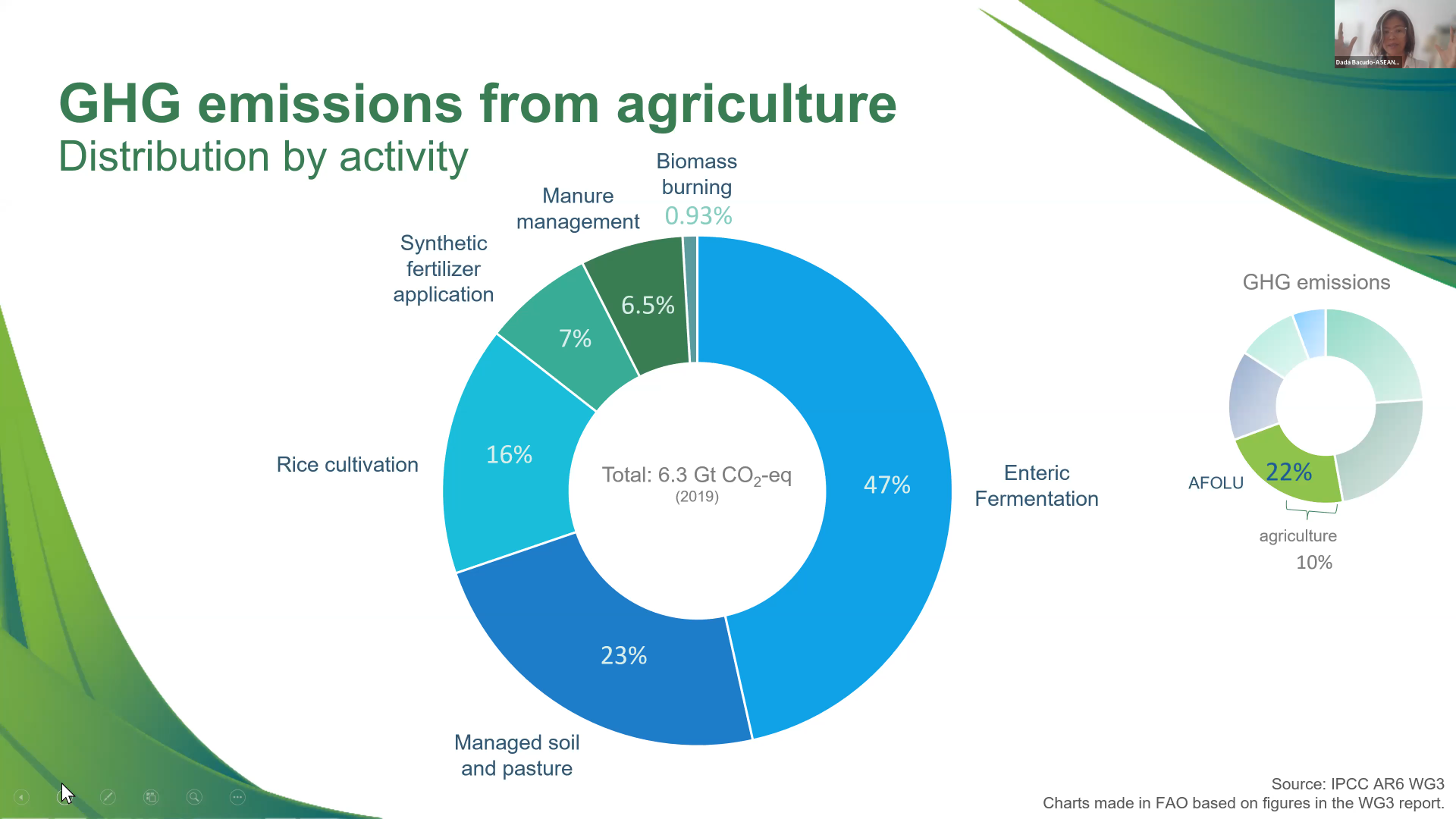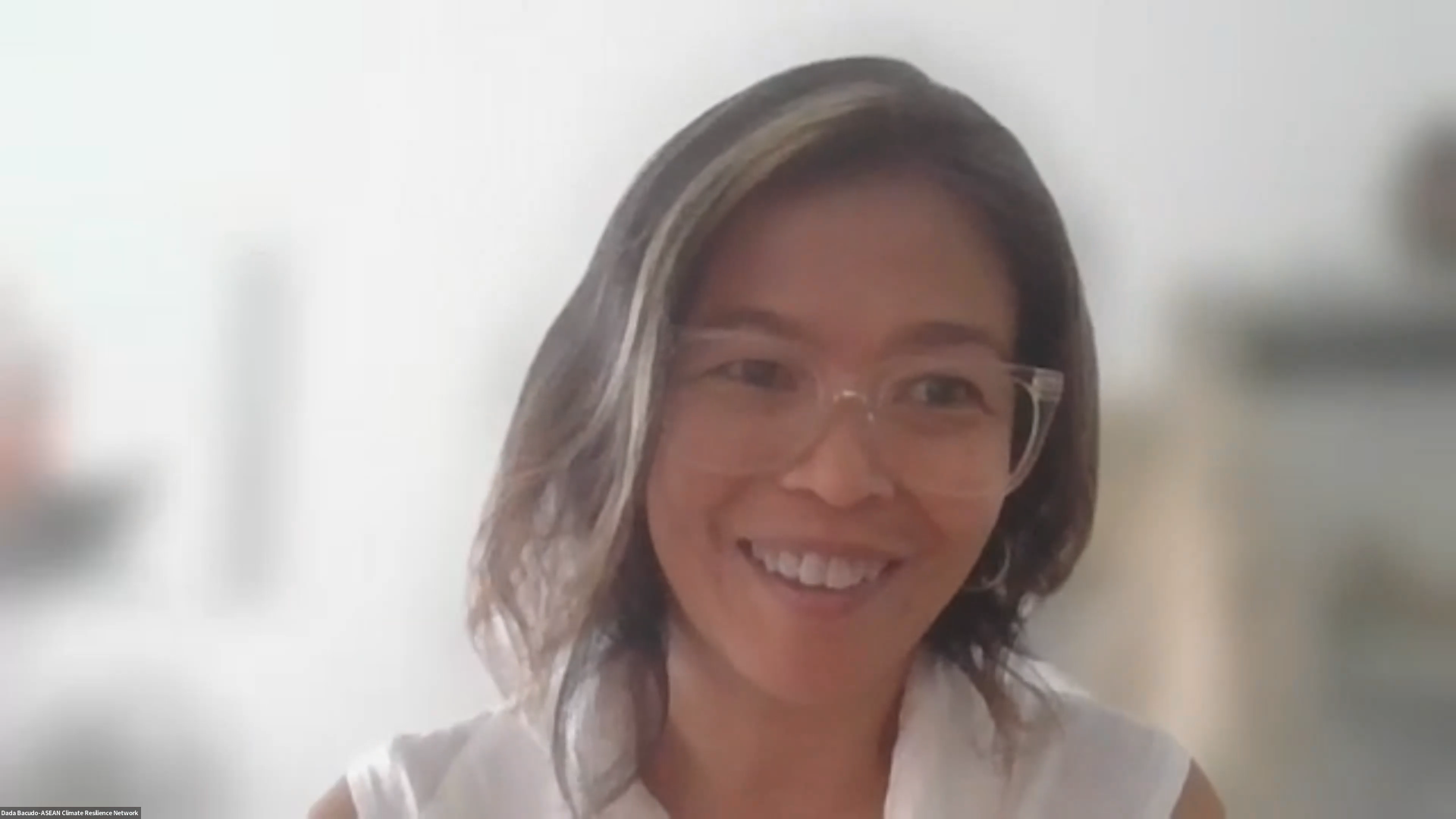“What is important is that you are not just on the side event, but you are able to bring your views through your national delegation,” told Imelda (Dada) Bacudo to the civil society organizations (CSOs) and farmer organizations that participated in the two day “Regional Workshop on Pathways to Climate Resilience”, held October 21-22, 2022 at Pasay City, Philippines. The workshop was part of a week-long series of events to mark the Asian Farmers’ Association for Sustainable Agriculture (AFA)’s 10th General Assembly and 20th Anniversary Celebration.
As one of the guest speakers during the said workshop, Bacudo shared how CSOs and FOs can bring their messages with a more effective engagement through the Koronivia Joint Work on Agriculture (KJWA).
Koronovia Joint Work on Agriculture (KJWA)
Started in 2017, KJWA is “a landmark decision under the United Nations Framework Convention on Climate Change (UNFCCC) that recognizes the unique potential of agriculture in tackling climate change (FAO).” As Bacudo introduced this in her message, she emphasized the integral role of the agricultural sector in both contributing to and addressing the greenhouse gas emissions in the world, which is foundational to the birth of KJWA.

As explained by Bacudo, the agriculture forestry and land use sector contributes 22%, with 10% coming from agriculture, to the greenhouse gas emissions.
“And therefore, it’s [agriculture] not just part of the problem; it should also be part of the solution. And because of these significant releases coming from the sector… there are also ways in which agriculture can become part of the solution,” explained Bacudo.
According to FAO, the KJWA paves a way for agriculture to be recognized in UNFCCC processes – as it is the sole program focusing on agriculture and food security under UNFCCC. With this capability that the KJWA possesses to bring in messages and spark discussions about agriculture on climate change, Bacudo encourages the participants to echo their views, specifically their messages from the conducted breakout sessions during the workshop, with the following key topics:
- Methods and approaches for assessing adaptation – adaptation co-benefits and resilience;
- Soil carbon, soil health, and soil fertility under grassland and cropland;
- Nutrient use and manure management;
- Livestock;
- Socio-economic and food security dimensions of climate change within the sector;
- Sustainable land and water management, and
- Strategies and modalities to scale up implementation of best practices, innovations and technologies that increase resilience and sustainable production in agricultural systems according to national circumstances.
“This is how you could make your voices be heard by the UNFCCC sessions. You have to put your topics in [sic] the way this was arranged,” shared Bacudo. She also zeroed in on the importance of UNFCCC Focal Point in bringing these messages into the KJWA portal. Though the deadline of sending the views has ended, she reminded that UNFCCC remains open in receiving their views.
A Call for Submissions
While the KJWA has achieved positive outcomes and still looks ahead to the future with possibilities that will be tackled at COP27, Bacudo continuously calls for the CSOs and FOs to send their views to KJWA.
“An important issue here is that climate finance to agriculture and land use is going down. It’s not going in [sic] the right direction, it’s going down. So with your submissions to either more financing, or to Koronivia, we hope to reverse this trend and get more attention for support,” she reminded the participants as she also introduced Food and Agriculture for Sustainable Transformation Initiative (FAST), another initiative of COP27 Presidency in Egypt.
As submissions to KJWA can open access to financial mechanisms and technical support that in turn, can aid in scaling up best practices in agriculture and low emission agriculture, she encouraged the CSOs and FOs to seize this opportunity to submit their views to KJWA, with the assistance of their UNFCCC National Focal points.
“And therefore your views would then be entering the negotiation hallways,” shared Bacudo as she closed her message. Bringing in these views on agriculture then, builds a pathway for agriculture to be part of the frontline in addressing climate change.
~~~~~
Update : One of the major decisions in the most recent COP27 (Egypt, Nov 6-18, 2022) is the four -year “Sharm el Sheik Joint Work on Implementation of Climate Action on Agriculture and Food Security”, where Parties and observers are invited to submit by March 27, 2023 their views on the elements of the Joint work referred to in the decision’s paragraphs 14-15.
Reference:
Food and Agriculture Organization of the United Nations (n.d.). Koronivia Joint Work on Agriculture. Retrieved from: https://www.fao.org/koronivia/en/#:~:text=The%20Koronivia%20Joint%20Work%20onagriculture%20in%20tackling%20climate%20change




Comments are closed